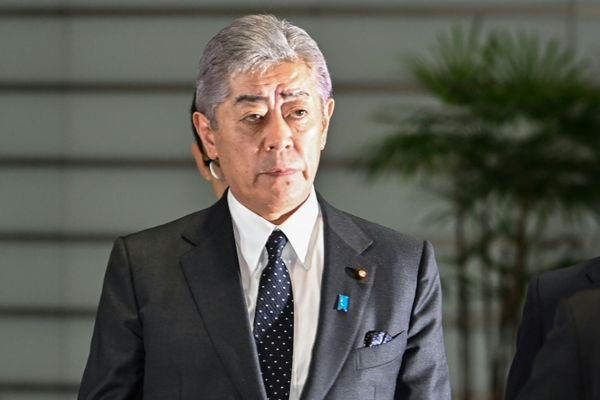
Brussels (AFP) - The European Union agreed to reduce gas consumption to break its dependence on Russia Tuesday, as missile strikes on Ukraine's Black Sea coast cast doubt on a grain export deal.
The effort to help Germany wean itself off Russian gas for the winter came as Turkey announced a meeting in Russia next week between Turkish President Recep Tayyip Erdogan and his Russian counterpart Vladimir Putin.
Erdogan wants Turkey -- on good terms with both Moscow and Kyiv -- at the centre of diplomatic efforts to halt the five-month war, just as the EU took another big step to cut ties to Moscow.
The EU gas use cut, approved by energy ministers in Brussels, was hailed as an effective response to Russia's manipulation of its energy wealth as an economic weapon.
The plan nominally commits EU countries to reduce their gas use by 15 percent during the winter, although exceptions were carved out for some countries and Hungary rejected the deal as "useless".
"We have made a huge step towards securing gas supplies for our citizens and economies for the upcoming winter," said Czech industry minister Jozef Sikela, whose country holds the rotating EU presidency.
"I know the decision was not easy, but I think at the end, everybody understands that this sacrifice is necessary," he added.
Hungary was the only country to oppose the plan, which passed on a majority vote, further isolating Budapest as the only member state reluctant to go further against Russia.
"This is an unjustifiable, useless, unenforceable and harmful proposal that completely ignores national interests," said Hungarian Foreign Minister Peter Szijjarto.
The deal "serves purely communication purposes, and aims to save the credibility of some Western European politicians", he added.
German 'mistake'
Germany, the EU's economic powerhouse, is hugely dependent on Russian gas.Berlin takes a major share of the 40 percent of EU gas imports that came from Russia last year.
"It is true that Germany, with its dependence on Russian gas, has made a strategic mistake but our government is working...to correct this," German Economy Minister Robert Habeck said.
The plan asks member states to voluntarily reduce gas use by 15 percent -- based on a five-year average for the months in question -- starting next month and over the subsequent winter through March.
The target will be adapted to the situation of each country, taking into account their level of stocks and whether or not they have pipelines to share gas.
Exceptions were given for island states like Ireland, Cyprus and Malta and to Spain or Portugal, which have limited links to the interconnected gas supply grid.
Baltic countries will be exempted if their electricity connections with Russia's grid were to be cut.
In the final proposal, EU member countries also rewrote an earlier European Commission plan to give Brussels -- rather than the member states -- the power to impose gas use cuts in an emergency.
The regulation now foresees the possibility to trigger a "Union alert" that would make the target mandatory, but the decision would lie with member states, a statement said.
The EU deal landed a day after Gazprom said it is cutting daily gas deliveries intended for Europe to about 20 percent of capacity from Wednesday.
Gazprom claimed technical reasons for choking off supply, but EU Energy Commissioner Kadri Simson dismissed this claim.
"This is a politically motivated step and we have to be ready for that and exactly for that reason the pre-emptive reduction of our gas demand is a wise strategy," she said.
The extent of Russia's split with the West over Ukraine was also underlined by Moscow's announcement that it would quit the International Space Station after 2024.
Until now space exploration was one of the few areas where cooperation between Russia, the United States and its allies had not been wrecked by tensions over Ukraine and elsewhere.
The decision to leave the ISS programme "has been made", Roscosmos chief Yury Borisov told Putin.
'Difficult' winter
Meanwhile, fighting continued in Ukraine.Kyiv said Russian forces launched multiple missile strikes at targets on the Black Sea coast near the southern port city of Odessa and in Mykolaiv.
The attacks come days after Russian strikes hit Odessa called into question a breakthrough deal to resume exports of grain from Ukraine, that have been disrupted by Moscow's invasion.
Rescuers were working on the ground near Odessa where "residential buildings" near the coast were hit in the strikes, Ukraine's southern military command said on Facebook.
In the east, Kramatorsk's mayor Oleksandr Goncharenko said he was worried about how tens of thousands of mostly elderly residents would cope in the coming months without any gas to keep them warm.
"This winter will be very difficult," he said.
He said that Ukrainian forces would have to push the Russians back at least 20 kilometres (12 miles) to be able to make repairs to broken gas pipes.
He called for more long-range weapons from Western allies to help repel the enemy.







